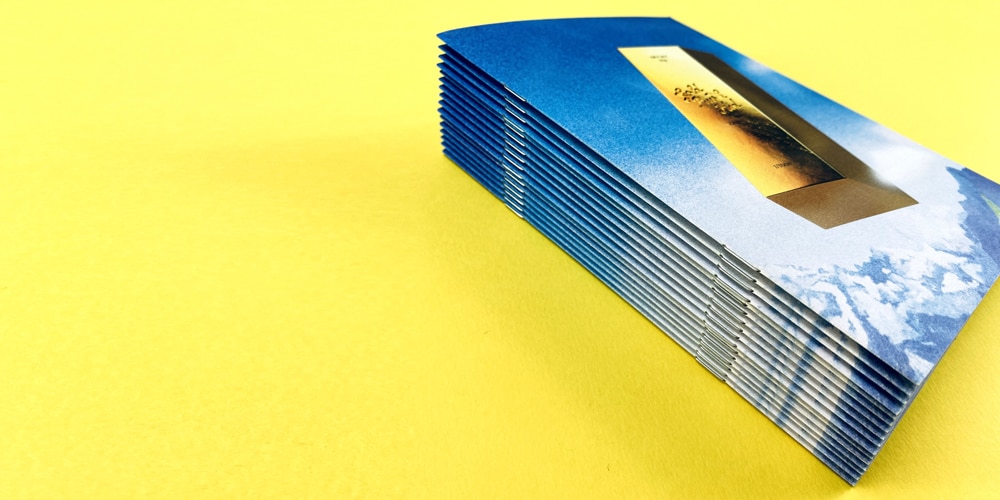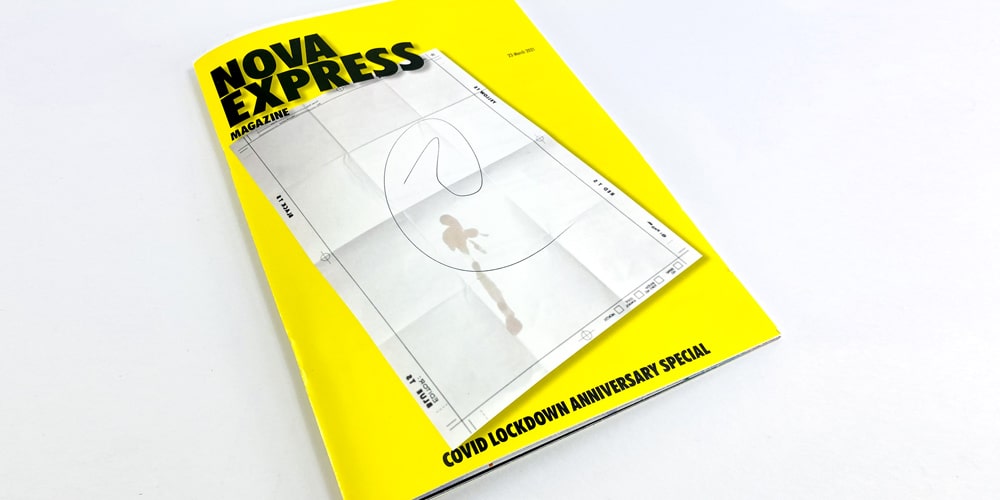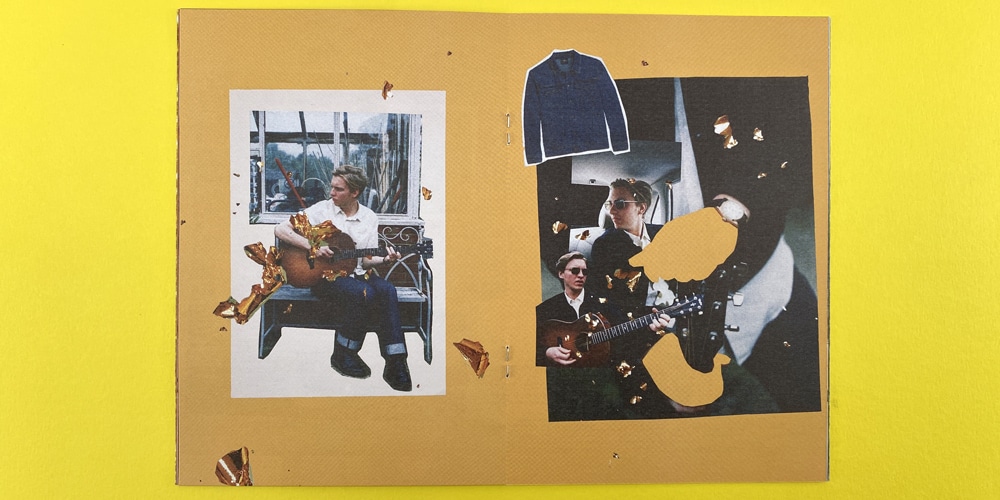What is a 12-page booklet?

A 12 page booklet may seem like an uncommon document type for some, but it can be a great choice for certain projects. It is a good solution for zines, fashion lookbooks, mini Final Major Projects and more. However, not every project calls for it. The document’s versatility makes it ideal for multiple purposes, but not all information exchanges require this type of publication. So how do you know if it’s the best choice for your project? Well, it really depends on how much content you would like to display and whether 12 pages is the ideal fit for your budget.

Full colour brochure printing involves printing using CMYK ink on our Indigo digital press or Heidelberg litho. On longer print runs which we produce on our Heidelberg litho press, there are also other spot colours that can be added to produce a more vibrant and colourful print output. When it comes to full-colour brochures, your design must be a multiple of 4 pages. You could choose to print just the front and back page in full colour while the inside pages could be in grayscale or black ink only.
It is one of the most common types of brochures that self-publishers and businesses use these days. It allows them to showcase their products and services in the best light possible.
When ordering a 12-page booklet, make sure to thoroughly check the final proof we send. If it all looks ok then send us your approval and we will go to print. On some websites, this page is also sometimes called a “payment gateway” or “order form.” A checkout page is typically the last step in a customer’s journey through an online service. At Ex Why Zed we operate a more friendly and customer centric process and will start a conversation on email rather than hiding behind an automated website.
In terms of booklet lamination, there are three types of finishes: matt, gloss and soft-touch. Lamination is always the best choice for book and booklet covers which have ink on the outside. Paper fibres like to remain flat and do crack when they are folded to bind a booklet. The lamination is thin, virtually invisible protective layer which protects the sheet from cracking and ensures it looks perfect on arrival with your reader.
When it comes to printing booklets, people should choose Ex Why Zed because of the company’s commitment to quality and customer satisfaction. We have a team of skilled professionals who use the latest technology to produce high-quality prints. In addition, the company offers a wide range of services that are designed to meet the specific needs of its clients. Under our wing, every customer would feel quality assistance and speedy services.
Do you have other concerns about booklets? Read our FAQ section below and start learning now!

What size is an A4 booklet?
An A4 booklet is 210 x 297 millimetres or 8.27 x 11.69 inches in size.
A4 paper is a common international standard size for paper and documents. It’s normally measured in millimetres at 210 millimetres wide and 297 millimetres long. There are also ISO 216 sizes that define the exact measurements of different paper sizes, including A4, A3, B5, and more. You can see a complete list on www.exwhyzed.fixed-staging.co.uk. We tend not to charge extra for bespoke sizes to do choose the options which et matches your idea and creativity.
How do I print an A4 page in the booklet?
There are a few ways to print an A4 page in booklet form. One way is to use the booklet printing option in your printer settings. This will print the pages out in the correct order so that they can be folded and stapled together to create a booklet.
Another way to print an A4 page as a booklet is to use a PDF editor like Adobe Acrobat Pro or Adobe Reader. This will allow you to create a “booklet” PDF file that includes all of the pages of your document placed in the correct order. You can then print this PDF file using your regular printer, and it will print out as a booklet. Experts at Ex Why Zed know how to do this and will give each client further assistance with the processes.
What is another name for a booklet?
There are a few different terms that are commonly used for booklets, depending on their size and purpose. “Brochure” is often used for small booklets that contain information about a product or service, while “catalogue” is typically used for larger booklets that contain a more extensive collection of items.
The term “booklet” can be used generically to refer to either of these types of publications. When it comes to printing, the most common size for booklets is A4 (8.27 inches x 11.69 inches). When it comes to a4 booklet printing prices, the cost of printing a booklet will depend on various factors, including the number of pages, the paper stock, and the print quality desired.

How long should booklets be?
The answer to this question depends on a number of factors, including the purpose of the booklet and the budget you have for printing. For example, if you are creating a marketing booklet to promote your business, you’ll probably want a larger format that showcases your products and services in the best light possible.
On the other hand, if you’re producing an informational booklet for a conference or event, a smaller size may be more practical and the cost of printing a4 booklet would be worth it. Ultimately, it’s important to consider all of these factors before deciding on the size of your booklet.
Do pamphlets work?
Pamphlets have been around for centuries and are still commonly used today as a means of marketing and advertising. While their use may seem disputed in this day and age of digital media, there is still a place for pamphlets – especially when it comes to providing potential customers with detailed information about a product or service. One of the key benefits of pamphlets is that they can be highly customised to include whatever information you want to include. This makes them ideal for conveying specific details about your product or service that you want potential customers to know. In terms of booklet binding, there are a number of different options available, including stapling, perfect binding, and saddle stitching.


